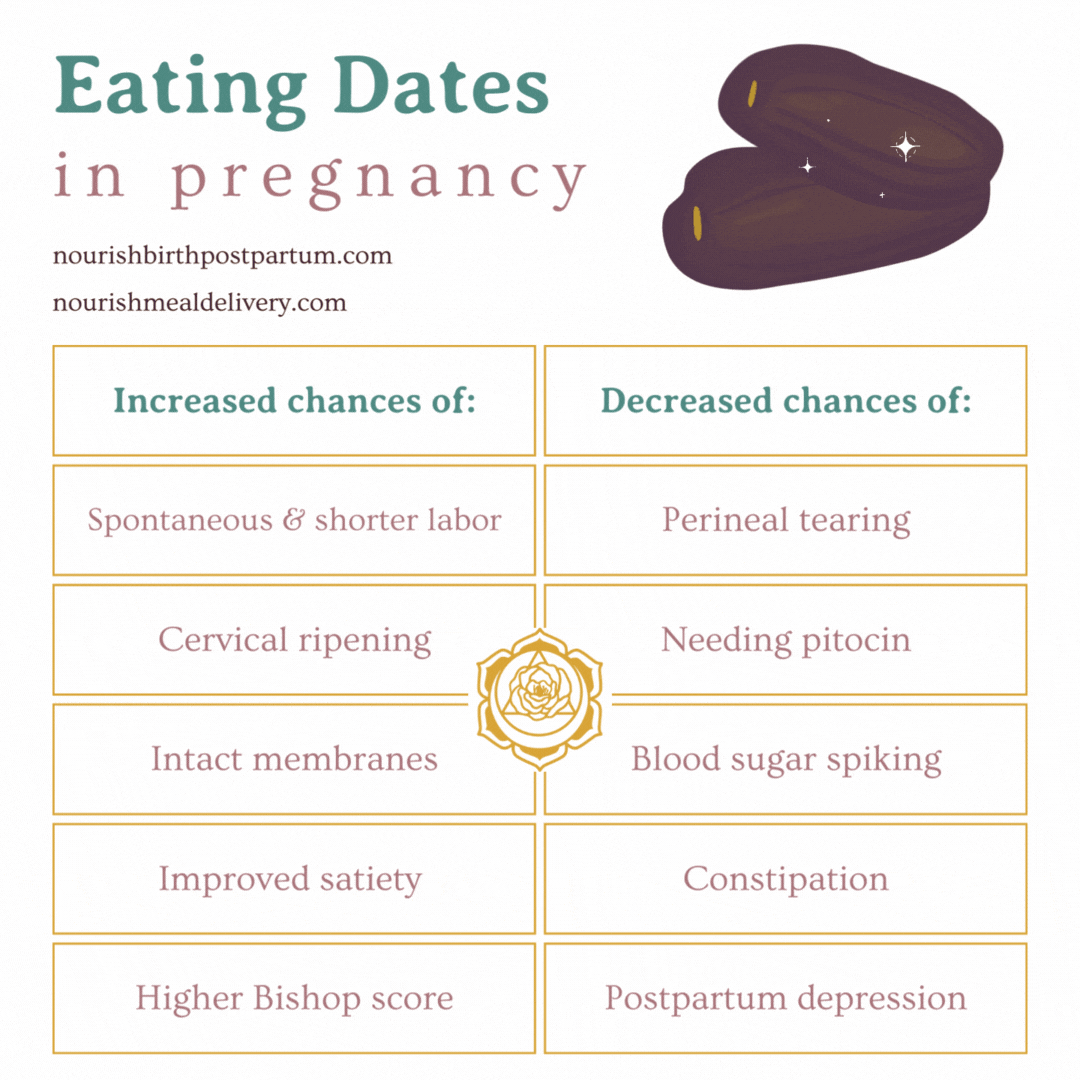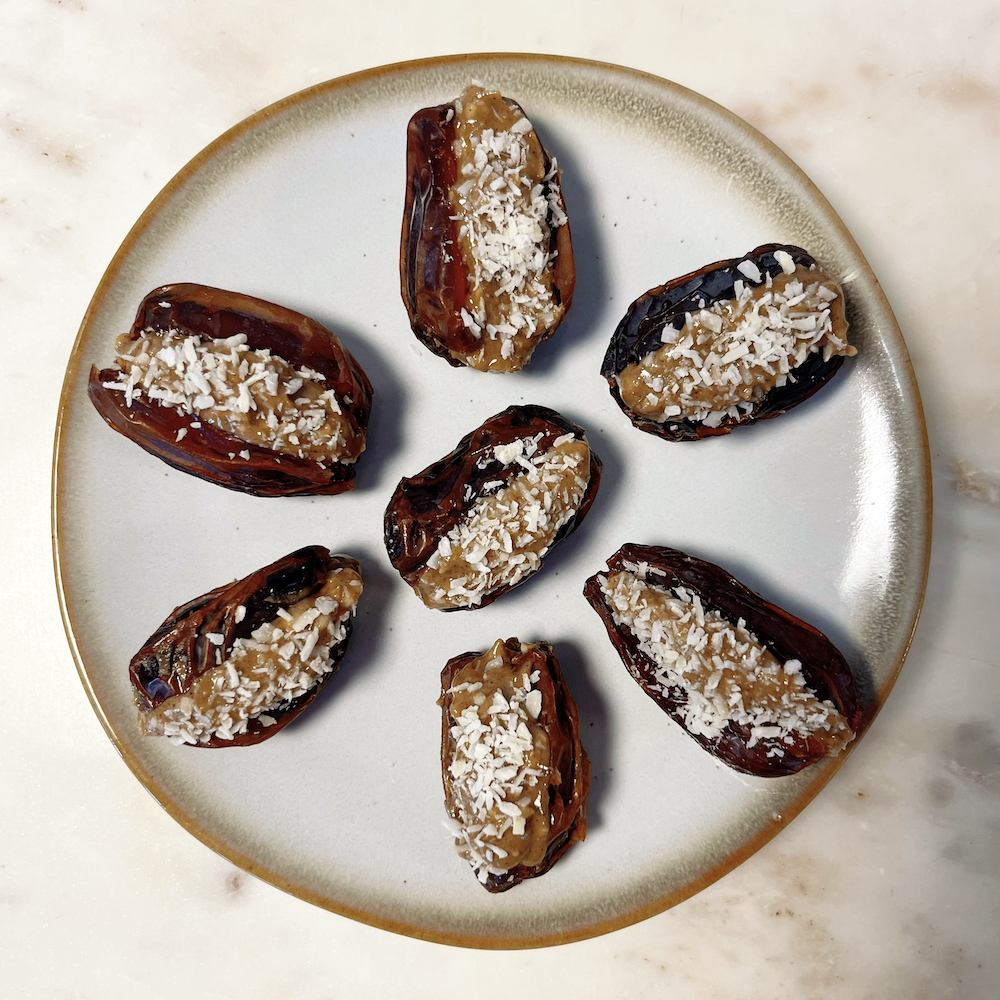
Our Divine Dates are in our Superfoods Snack Bundle! 🤤 Featuring deliciously healthy lactation snacks for moms who have only one hand to curb off hanger. Perfect to eat during nursing👩🏻🍼or when rocking your #newborn to sleep. 😴 Read below about the evidence of dates and the benefits of eating dates for pregnancy, birth, and postpartum.
The Evidence of Dates
𝗕𝗲𝗻𝗲𝗳𝗶𝘁𝘀 𝗼𝗳 𝗲𝗮𝘁𝗶𝗻𝗴 𝗱𝗮𝘁𝗲𝘀 for 𝗽𝗿𝗲𝗴𝗻𝗮𝗻𝗰𝘆, birth, 𝗮𝗻𝗱 𝗽𝗼𝘀𝘁𝗽𝗮𝗿𝘁𝘂𝗺:
1. Nutrition: Dates are a good source of fiber, antioxidants, Vitamin C, B6, magnesium, and potassium. These nutrients aid healthy skin, tissues, and collagen synthesis, which support tissue integrity during birth. Dates provide energy and help constipation, which can be beneficial in the early #postpartum period when women experience fatigue and discomfort during bowel movements.
2. Low glycemic: Dates are considered low glycemic due to their high fiber content, which slows down digestion and absorption of carbs, improving satiety and preventing spikes in #blood #sugar levels after a meal.
3. Labor Preparation: A 2011 Journal of Obstetrics and Gynaecology study found women who consumed dates in the last 4 weeks of pregnancy had a significantly higher chance of #spontaneous labor. It found those who ate dates had a reduced need for labor augmentation, and a shorter labor (latent phase) compared to the non-date group.
4. Cervical ripening: A 2007 Journal of Obstetrics and Gynaecology study showed those consuming dates had higher Bishop scores compared to the non-date group, a higher proportion of intact membranes and a lower need for pitocin augmentation.
5. Shorter Labor Duration: A 2014 #Journal of Midwifery and Reproductive Health #study showed those eating dates during late #pregnancy had a shorter first stage of #labor compared to those who didn’t eat #dates.
6. Softening of tissues: Dates contain natural sugars and enzymes that soften the #cervix and promote tissue elasticity. Softening the cervix may reduce the risk of perineal tearing during #birth. Dates contain compounds that may help stimulate uterine #contractions and facilitate cervical ripening.
#postpartumMeals #postpartumMealDelivery #lactation #nursing #breastfeeding
Order our Superfood Snack Bundle at nourishmealdelivery.com>>



